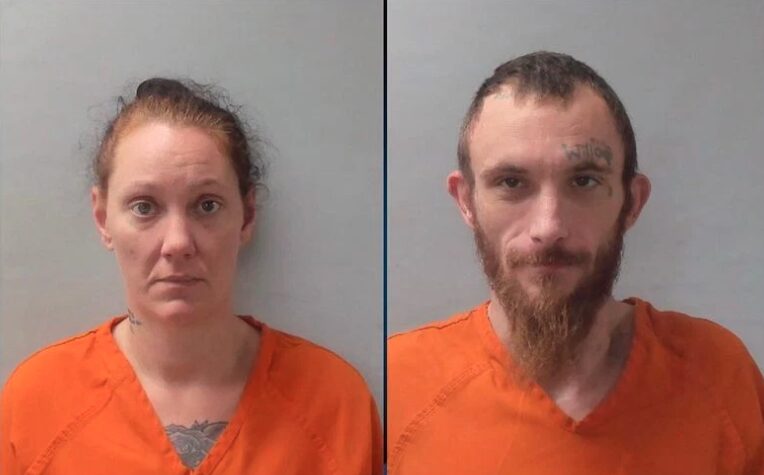
(WASHINGTON) — Social media platform TikTok is hurtling toward a U.S. ban that could upend its business and frustrate more than 150 million American users — unless President-elect Donald Trump finds a way to reverse the policy.
Trump, who boasts 14 million followers on TikTok, voiced opposition to the ban earlier this year. The policy, which orders TikTok to find a U.S. parent company or face a ban, is set to take effect on Jan. 19, a day before Trump’s inauguration.
An effort to eliminate the ban may present formidable political challenges and legal hurdles, experts told ABC News. The outcome could depend on support from an array of major institutions ranging from Congress and the Supreme Court to tech giants like Google and Oracle, they added.
The China-owned app has faced growing scrutiny from government officials over fears that user data could fall into the possession of the Chinese government and the app could be weaponized by China to spread misinformation.
There is little evidence that TikTok has shared U.S. user data with the Chinese government or that the Chinese government has asked the app to do so, cybersecurity experts previously told ABC News.
TikTok did not immediately respond to ABC News’ request for comment. Neither did Trump’s transition team.
The president is expected to try to stop the ban of TikTok after he takes office, The Washington Post reported on Tuesday, citing people familiar with his views on the matter.
Here’s what to know about the different ways that Trump could try to stop the TikTok ban, according to experts:
Push Congress to repeal the TikTok ban
The most straightforward way to reverse the policy would be a repeal of the law that enacted the ban in the first place, experts told ABC News.
A repeal would require passage in both houses of Congress, landing the measure on Trump’s desk for his signature.
“The easiest way is to ask Congress to reverse the ban,” Anupam Chander, a professor of law and technology at Georgetown University, told ABC News. But, he added, it isn’t as easy as it sounds.
Congress voted in favor of the ban only seven months ago. In the House of Representatives, the ban passed by an overwhelming margin of 352-65. In the Senate, 79 members voted in favor of the measure, while 18 opposed and 3 abstained.
A repeal effort carries political risks for Trump, since it could be perceived as conciliatory toward China, in contrast with the adversarial tone voiced by Trump on the campaign trail, James Lewis, a data security expert at the Center for Strategic and International Studies, told ABC News.
“It’s a political problem,” Lewis said, noting that Trump could soften potential backlash by seeking a reform of the law rather than an outright repeal.
Trump may not need Congress to repeal the ban. A lawsuit against the ban brought by TikTok on First Amendment grounds currently stands before a three-judge panel of the U.S. Court of Appeals for the D.C. Circuit.
Experts who spoke to ABC News said they expect the court to rule against TikTok, but the company could then appeal, potentially sending the case to the Supreme Court before the ban takes effect. The Supreme Court may determine that the legal challenge holds sufficient merit to delay implementation of the ban, leading ultimately to a rejection of the law.
“The Supreme Court may want a crack at this,” Alan Rozenshtein, a law professor at the University of Minnesota who focuses on the First Amendment, told ABC News.
Refuse to enforce the TikTok ban
Instead of repealing the law or counting on court intervention, Trump could try to prevent the Justice Department from enforcing the measure, experts said.
The law orders distributors like Apple and Google to stop offering the social media platform in their app stores, and it requires cloud service providers like Oracle to withhold the infrastructure necessary for TikTok to operate.
Companies that violate the law risk a penalty of $5,000 for each user who accesses TikTok. “That adds up,” Rozenshtein said.
In theory, Trump’s Justice Department could opt against enforcement of the law, reassuring the likes of Apple and Oracle that the companies would not face prosecution in the event of a violation, experts said.
Along similar lines, the Trump administration could take up an interpretation of the ban that affords it wide latitude in finding that TikTok has complied with a requirement that it divest from parent company ByteDance, experts said.
In other words, even if TikTok has made little effort to comply with the law, the Trump administration could attempt a reading of the measure that finds the company has met the threshold necessary to avoid a ban, Rozenshtein said.
If Trump opts against enforcement, the move could still prove insufficient. Companies like Apple and Oracle may decide to comply with the ban anyway, since they could face legal risk if the Trump administration reverses its approach, Rozenshtein added.
“Trump is mercurial,” Rozenshtein said. “If you are Apple’s general counsel, do you really want this hanging over you?”
Help TikTok find a U.S. buyer
Finally, Trump could try to find a U.S. buyer for TikTok, allowing the platform to avoid a ban. This approach may appeal to Trump’s self-image as a business dealmaker, but time is running short for such a significant business transaction and TikTok has shown little appetite for it, experts said.
The law allows for a 90-day extension of the deadline for a TikTok sale, as long as the company is advancing toward an agreement. Under such a scenario, the deadline would move back to April, providing Trump with additional time.
“It’s possible that he’ll try to force TikTok to come to some kind of deal with American buyers,” Lewis said. “It’s not likely. TikTok will hold out as long as they can.”
China has signaled opposition to the sale of TikTok to a U.S. company, The Wall Street Journal reported in March.
Alternatively, Trump could seek a compromise measure in Congress that affords him additional time and wider latitude to establish a U.S.-based operation for TikTok, experts said. Or the Trump administration could offer up an interpretation of the law that gives it space to strike a compromise with TikTok.
TikTok previously proposed a solution called “Project Texas,” in which the company would keep all data on U.S. users within the country through a partnership with Oracle. When TikTok CEO Shou Chew testified before Congress last year, several members raised concern about a potential lack of third-party oversight in such an arrangement.
Trump could seek to assuage the concerns of members of Congress while reaching terms satisfactory to TikTok, Chander said.
“Trump may be able to do things that reassure the American people that the app is safe, and that it is bringing a lot of the programming here to U.S. soil,” Chander said.
Copyright © 2024, ABC Audio. All rights reserved.




